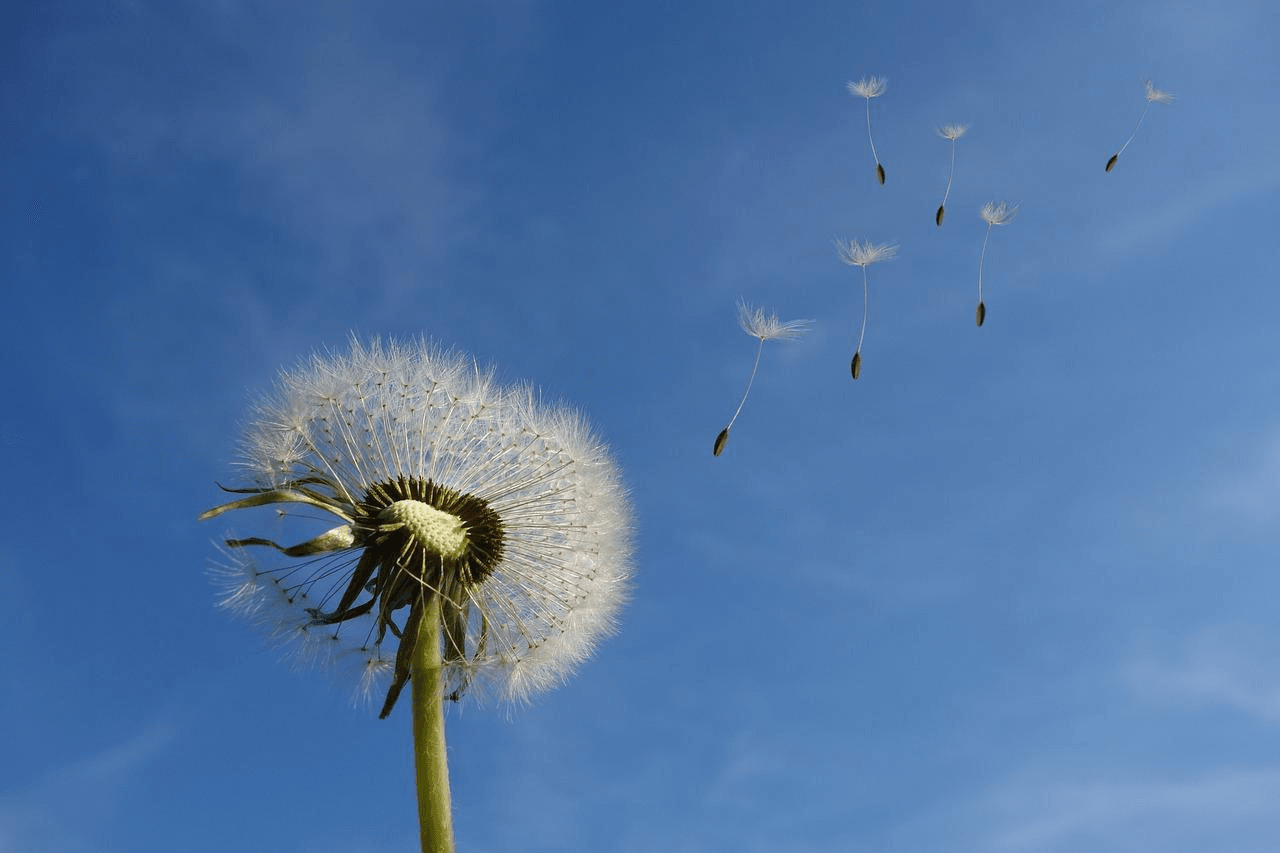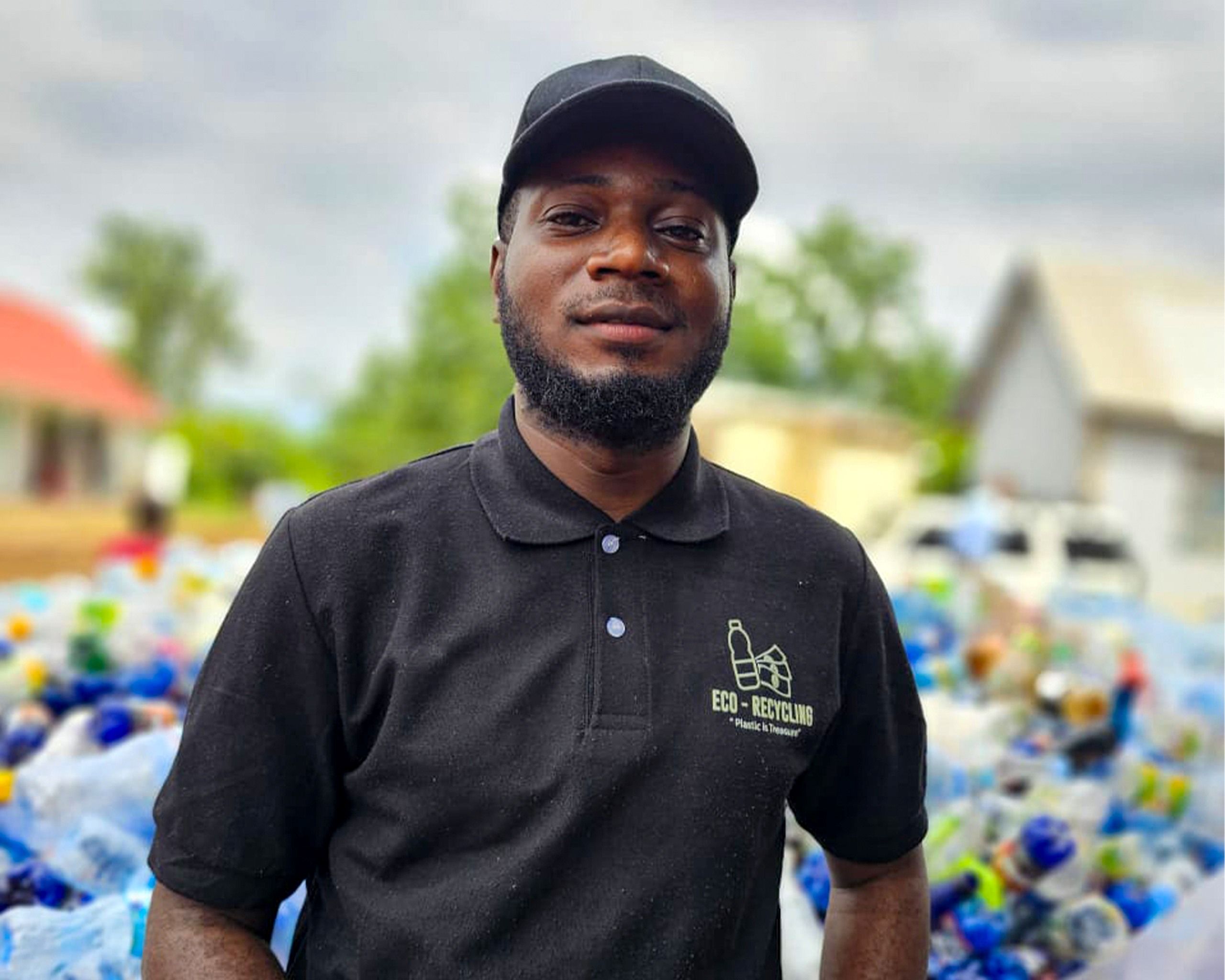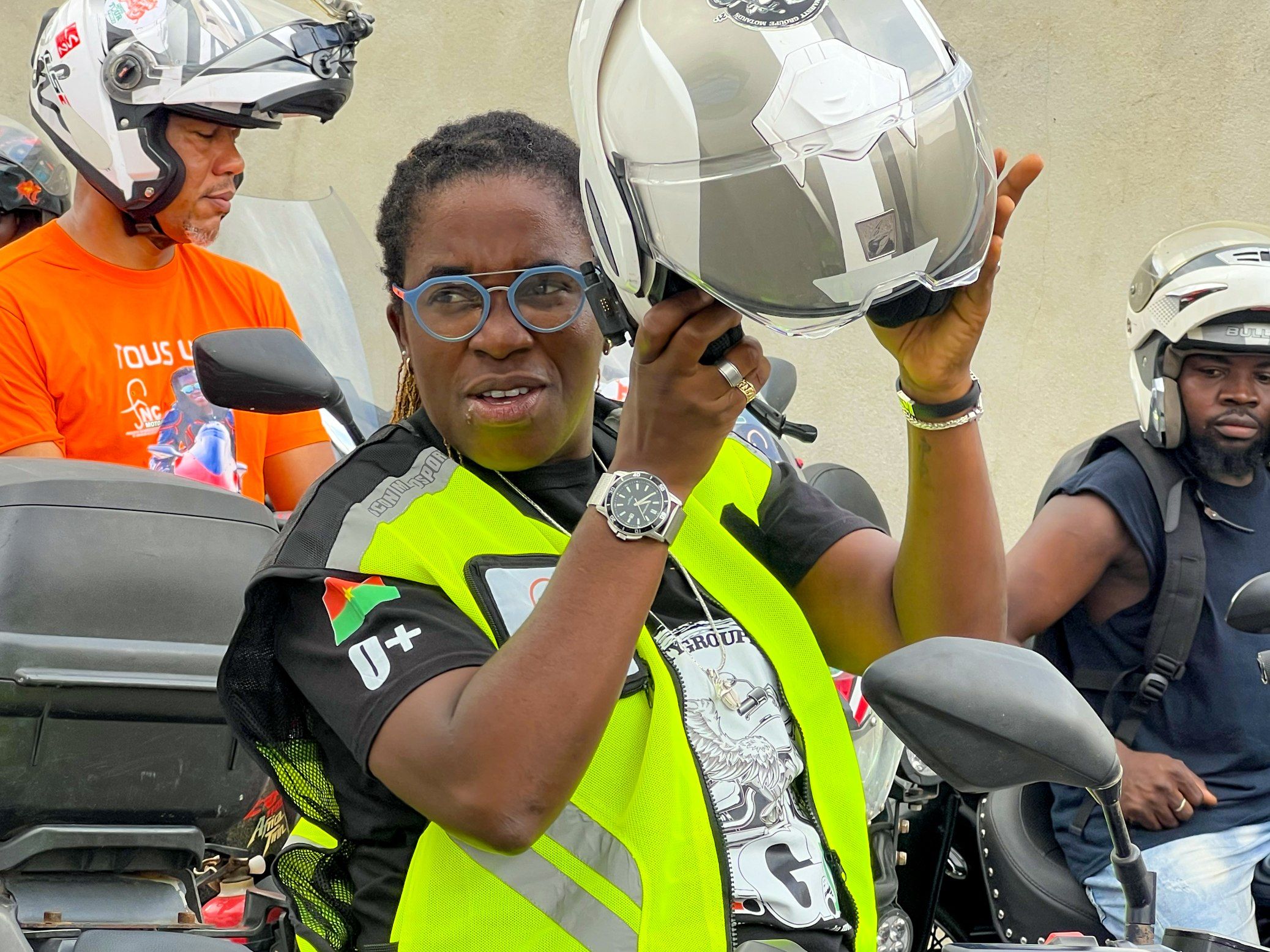A revolution has been born. It is a revolution of the heart, the mind, and the spirit—an unstoppable force propelling us towards a more just, inclusive and harmonious world.

If cages are the problem, then keys are the solution—metaphorically speaking. Because while cages symbolise the barriers, limitations, and imprisonments that restrict us, keys denote the access, possibilities, and opportunities that free us.
In the intricate tapestry of human existence, the interplay between building cages and dropping keys encapsulates the struggle for power, liberation, and transformation.
Cages stifle potential. Keys unlock it.
And as far as Women for the Environment (WE) Africa is concerned, every key represents the potential for change—a step towards a safer future for our planet and all its inhabitants.
But let's start from the beginning.
September 23rd 2022, Lake Elementaita Serena Camp
Shifting perspectives
The sun is beaming, the birds are singing, and the women are gathered. The second retreat for the second cohort of women embarking on the WE Africa leadership journey is taking place at the Lake Elementaita Serena Camp. Within the mission of WE Africa to place women at the heart of Africa's environmental movement, these retreats hold profound significance. They create a sacred space where the women converge, connect, harness wisdom, and nourish their spirits.
On this idyllic September day, as the gentle breeze carries the whispers of nature, an adapted poem by Hafiz, a revered Sufi poet from the 14th century, is shared:
The small woman
Builds cages for everyone she knows.
While the sage,
Who has to duck her head
When the moon is low,
Keeps dropping keys all night long
For the beautiful, rowdy prisoners.
On its own, this poem is compelling. In the hands of a collective of African women embracing alternative leadership approaches to accelerate the change required to save our planet, it is dynamite.
The notion of dropping keys sparks a critical dialogue about the meaning behind keys and cages. The women share real-life and deeply moving personal accounts of instances where they have dropped keys and had keys dropped for them. It's a beautiful thing to watch.
The exchange marks the beginning of a journey toward something remarkable. Hafiz's poem will become a rallying cry for WE Africa—a catalyst for action and a call for change.
But change takes time.
***
When you have grown up believing that resources are limited, one person's success must come at the expense of others, and life is a zero-sum game, you may gravitate towards unhealthy competition. You may hoard resources and shrink inwards.
But our world has thrived not because of unhealthy competition but because of our ability to collaborate and support each other in diverse and rich ways. Nature itself demonstrates the interconnectedness and interdependence of ecosystems, where concerted efforts and mutual support lead to greater prosperity for all.
So where is the lie?
Following the crumbs, one cannot overlook the role of a concept deeply ingrained within contemporary Western culture—an orientation that revolves around the belief that "the kingdom is me." And while there is nothing inherently wrong with striving for personal agency and happiness, it becomes problematic when self-interest undermines the social cohesion and collective responsibility essential for a thriving society.
Individual goals and collective well-being need not be mutually exclusive.
Indeed, we all have a story or three about when we dropped a key. But more often than not, the temptation is to hold tightly to the keys we possess, believing they grant us security, status, and control.
What if, moving forward, we shifted this perspective?
What if we were more deliberate about dropping keys?
What if instead of simply giving away what we don't want, we also relinquished things we desire?
What if we dropped keys with the genuine intention of benefiting the greater good, confident that it would ultimately benefit us as individuals as well?
Co-founder of WE Africa, Dr Colleen Begg, shares her thoughts:
"For dropping keys to really work, it has to hurt a bit. It is not meaningful to just pass on things we don't want or don't have time for anyway. We have to be able to step back a little from an amazing opportunity we have been given and ask ourselves if there is someone else we know who needs this more, who can do a better job or might be able to fly if we get out of the way. The dropping of keys for these high-value opportunities is the most meaningful and impactful, and it is the hardest. That's where the magic lies…And it doesn't have to be visible and often shouldn't be. Quietly drop the key... don't expect accolades for it".
It's a big ask. Uncomfortable. Challenging. But worth our while. Dropping keys is, ultimately, an act of profound courage because it requires us to let go of our attachments. And once we do, we cultivate an environment of abundance. And amplify outcomes.

April 14th 2023, WE Move Whatsapp Group, Online
Dropping keys in action
On graduating from the WE Africa leadership programme, fellows join WE move, shifting from individual efforts to collective action. At its core, WE move beats the rhythm of unlocking doors to liberation and empowering others to create the change needed to protect and preserve our natural heritage.
WE move has a corresponding Whatsapp group, where a vibrant exchange of ideas and perspectives occurs. On this particular day, the conversations resonate with a unified purpose, converging towards a singular path—the act of dropping keys:
"Musimbi dropped a massive key for me by nominating me to speak at the Mo Ibrahim Governance Weekend, and I wanted to share it with my sisters! I'm trying to find some keys from this opportunity to drop too—such incredible visibility for WE Africa and our movement."—Dr Leela Hazzah.
"Ladies, @Nina Wambiji dropped a major key by nominating me for the UNEP program. I feel supported. Thank you, Nina!" —Olufunto Boroffice.
"The power of WE is beyond beyond. Also feeling good and blessed. My dear @Paola has been dropping keys for me to do some consultancy work on pangolin with communities in the land of my ancestors, Chimanimani."—Takudzwa Mutezo.
“I am blindly reviewing 5 PhD proposals courtesy of @Fiona Moejes of Mawazo Institute and deeply humbled by this request. @Nafeesa is also dropping keys for us through her invitation to the roundtable at the upcoming ICCB." —Dr Nina Wambiji.
In the unfolding narrative above, dropping keys has become more than just an aspiration. It is a movement in action.
I follow this narrative closely and extend an invitation to the women to share their personal interpretations of dropping keys. The emerging responses reflect the unique experiences, insights, and journeys of the women who embody the spirit of empowerment and collective upliftment. Their perspectives reveal that dropping keys is an act of liberation, limitless in its interpretation.
For some, dropping keys represents and embodies a world of reciprocity, equality, unconditional love and upliftment that we all deeply yearn for…
Others interpret dropping keys as helping others consider possibilities that may have previously seemed out of reach. It is connecting people to resources that might be helpful: opportunities, networks, skills, advice…It is vouching for those who are deserving and qualified…
Some see dropping keys as cultivating a presence of mind and intentionality that ultimately leads to the outcomes and actions of that presence…
Dropping keys also translates to sharing stories in authentic ways…making and holding space for each other in great and not-so-great moments…encouraging those who still have work to do but might be tired, afraid or discouraged…
For many, it is bringing the entire sisterhood to every single table and conversation and keeping doors open for others to come through.
***
April 30th 2023, Nairobi, Kenya
Our call to thrive—collectively
The Mo Ibrahim Governance Weekend is taking place in Nairobi, Kenya. Dr Leela Hazzah, the co-founder of WE Africa, has picked up the key that Dr Musimbi Kanyoro dropped for her. She will share her leadership perspectives at one of the meetings co-chaired by former President of Liberia, Ellen Johnson Sirleaf and former President of Ireland, Mary Robinson. Special guests include United Nations Deputy Secretary-General Amina Mohammed and Director General of the World Trade Organization Ngozi Okonjo-Iweala.
Leela comes with her tribe: Women from the WE Africa movement as well as members of the Maasai Indigenous Communities that she has been working with for decades. All come with presence, power, and expertise. But many have minimal access to spaces like these. She carefully selects individuals based not only on the opportunities this would present for their careers but also on the diverse values and perspectives they bring. In this moment, Leela has chosen to drop keys by sharing her power.
She delivers a speech that conveys the essence of this transformative act. These are her words:
I want you to imagine a candle. A single candle. That candle represents your light. The light you have spent your whole career igniting…for it to shine brightly in a dark and broken world. That light represents everything you have given of yourself for your work, your purpose, the cause that gets you up every single day. You have sacrificed so much. And without a doubt, the world is a better place because of the light that each one of you brings.
Within WE Africa, we have a ritual. At the start of every year, when we gather as a new cohort of female leaders from across the continent, we light candles. Because we believe wholeheartedly that as we use our own flame to light someone else's candle, we grow exponentially brighter—together. Our own candle doesn't lose anything by lighting the candle of another.
In real life, this is much easier said than done. Sharing our light, making space for others, including voices that aren't always heard. This takes an immense amount of courage and conviction. Because the fear is very real: The fear of irrelevance, the fear of losing power, control, or visibility. These fears are rooted in the belief that power, and access, and visibility are finite resources. More for you means less for me.
As you sit with this, I'd like you to gently normalize and hold these fears with compassion and kindness within yourself. And remember that the light we carry has been gifted to us by people in our lives that light the way, the ones we sit on the shoulders of (our grandmothers, our mentors, our friends). They had the same fears. So ask yourself, what may be keeping you from lighting more candles?
Imagine now that you set aside those fears and any feeling of discomfort and you light the candle of another instead. You share your light. You share your platform, network, access, power, and secrets to success. And that person whom you shared with can now step into the fullness of their own light and use their flame to make space for others. Picture the joy you feel when you watch them occupy that space you opened—with such confidence and courage to speak up authentically.
I'd like you to sit with the primary feeling or emotion that you have at this very moment. Name the emotion and hold on to it.
The reward for lighting candles is beyond just feeling good about ourselves. When we open space for others, we open up space for ourselves to learn and grow. Our purpose, our why, becomes clearer as our paths are lit by many…. And ultimately, we give ourselves permission to feel less alone—literally, we feel lighter when we share the heavy burden that we carry.
One of the greatest gifts of sharing space is what I call the law of perpetual returns—when you open space for others without expectation of anything, more and more doors will open up for you. Call it karma, the power of the universe, but the experience is real and addictive.
As I close this experience, I'd like to ask you to return to that beautiful feeling you had when you lit someone else's candle. Name it again. And feel where it sits in your body. Hold it there. Honour it. And remember that this feeling can be awakened at any time by simply sharing what you have.

***
Leela’s message strikes a chord. Her words remind us of the power we hold to make a difference individually and collectively. More than that, her choice to bring to the table the women of WE Africa and members of the Indigenous Maasai community demonstrates her commitment to the cause.
One of the women for whom she dropped this key was Resson Kantai Duff. Following the experience, Resson shares her reflections:
“This opportunity was meant for Leela. But with intention and discernment, she recognized the unique value it held for the growth and development of others. Her behind-the-scenes efforts to secure our seats at the table alongside incredibly accomplished and influential individuals was a powerful display of inclusivity in action. The experience was humbling and awe-inspiring. It reminded me of the power we hold individually and collectively and served as a valuable lesson in being prepared, grabbing opportunities, and understanding my own value”.
Undeniably, the journey of dropping keys is more than just generosity or chance occurrences; it is recognising and embracing one's own power and believing in the inherent worth of every individual. It is about understanding the importance of intentional inclusivity. And in the context of WE Africa, it represents a shared determination to create a more sustainable and thriving planet.





